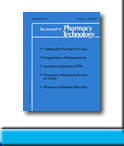 |
 |
DRUG-INDUCED LUPUS DUE
TO PHENYTOIN
Robert J Siragusa, Francisco A Ramos-Caro,
N Lawrence Edwards,
and Franklin P Flowers
To request full article click here.
OBJECTIVE: To report a case of lupus erythematosus induced by long-term use of phenytoin and to discuss the clinical aspects of drug-induced lupus.
CASE SUMMARY: A 67-year-old white man who had been taking phenytoin for approximately 15 years was hospitalized due to fever, pericarditis, severe abdominal pain, malaise, and weight loss. Laboratory studies revealed a positive antinuclear antibody assay in a titer of 1:80 in a homogeneous pattern, a strong positive antihistone antibody test, an elevated erythrocyte sedimentation rate (115 mm/h), and neutrophilia (20,800 cells / mm³). All symptoms and signs disappeared, and the laboratory abnormalities returned to normal within a few weeks after discontinuing phenytoin. The patient was not rechallenged.
DISCUSSION: Drug-induced lupus has been reported to typically occur within a few years after starting the medication responsible. Musculoskeletal complaints are the most common manifestations of drug-induced lupus. Pleural effusions, pericarditis, and pulmonary infiltrates have also been reported. Cutaneous findings are uncommon, and renal involvement is rare.
CONCLUSIONS: Our case is unusual in that the patient had been taking phenytoin for approximately 15 years before developing lupus.
J Pharm Technol 2000;16:5-7.
To request full article click here.
|
|
|
||
|

